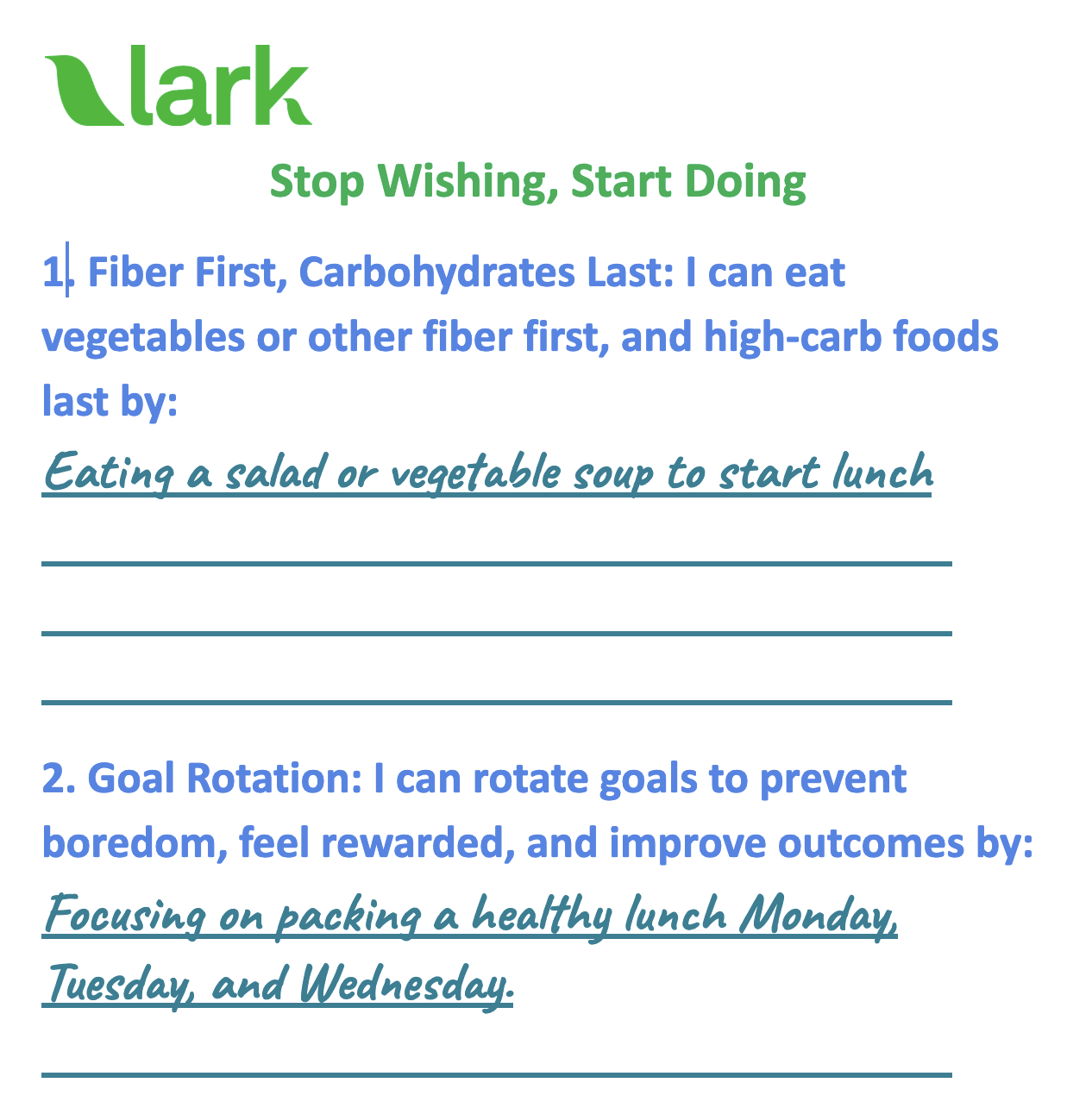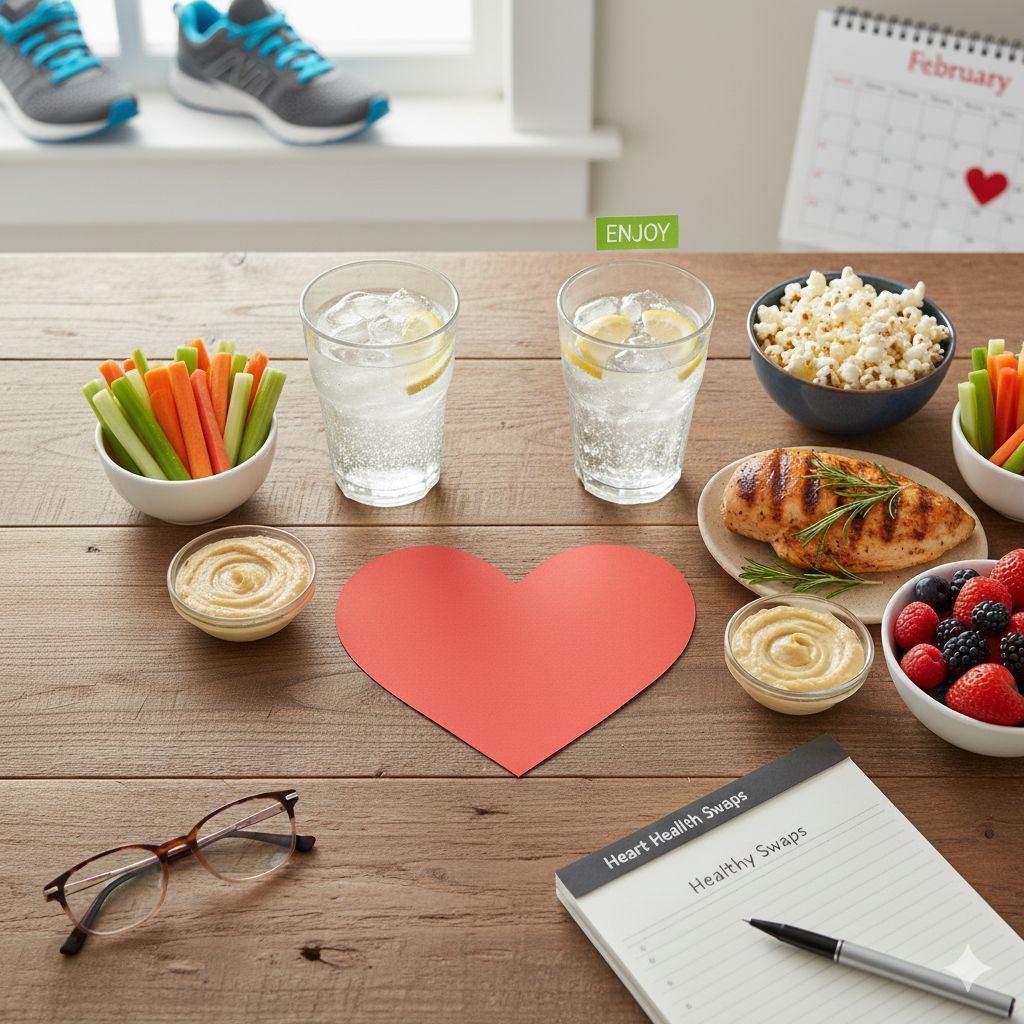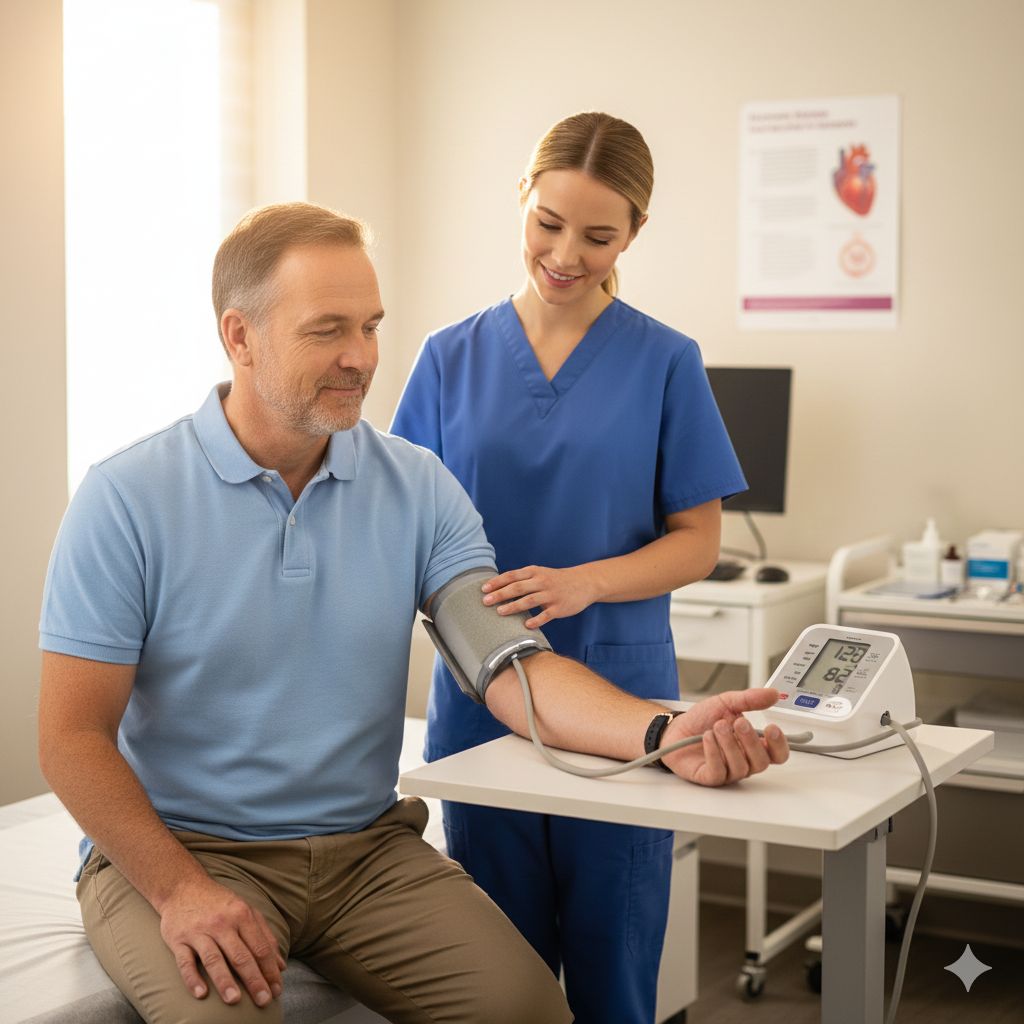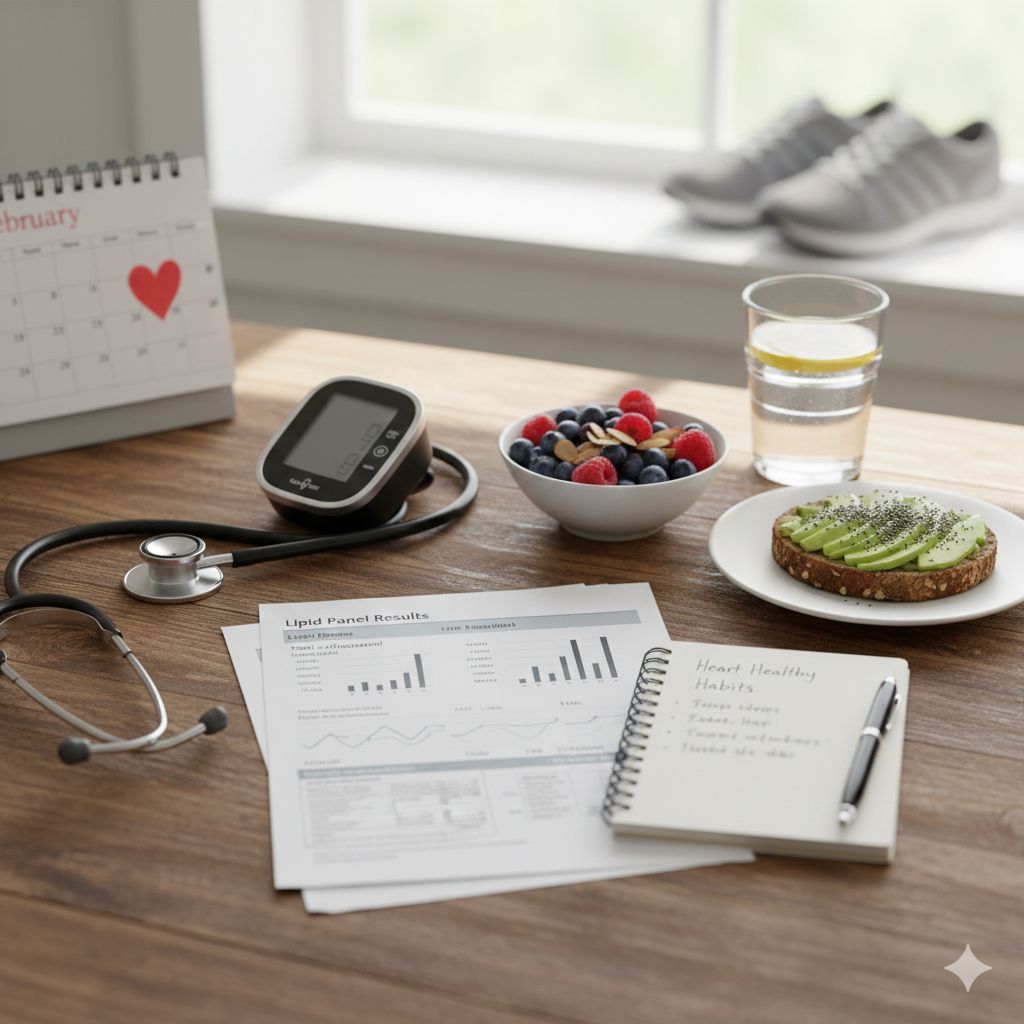In this article:
- Summer activities and foods can promote health, but it’s important to take steps to stay energized, hydrated, active, and safe.
- Nutritious, light foods can help you stay on track with weight goals.
- Stay hydrated, especially on hot or humid days, and during long or intense workouts.
- Consider water safety and drink responsibly (if at all) to avoid accidents, and protect yourself from the sun all summer.
- Enjoy times with family and friends, and stay healthy on vacations by planning ahead.
- Your Lark coach is available 24/7 to help you make healthy choices around nutrition, activity, and more.
For many people, summer is the best time of year to get outside, appreciate nature, and enjoy the company of family, friends, and neighbors. Opportunities to thrive are abundant, and you can take full advantage of them with some caution and planning. Things like eating well and hydrating, following water safety tips, and following best practices for safe travels can keep you at your best to make the most of summer.
Here are 10 tips for staying healthy and safe this summer.
- Eat well
Summer fare can be light and nutritious. Seasonal stars include produce like eggplant, tomatoes, cucumbers, zucchini, watermelon, and peaches. For refreshing and energizing meals, stick to cooler and lighter meals like salads, grain bowls, and soups. Add lean proteins like fish and shrimp to the grill, and serve them with grilled vegetables and fresh fruit.
Summer foods aren’t all nutritious, so keep an eye out for cold, sugary drinks and frozen treats. Fatty meats and creamy prepared salads are also high in calories and low in nutrients. Here are some swaps.
I’ll make a table with these
- Ice cream
- Sugary ice pops
- Creamy potato salad with mayo
- Creamy pasta salad
- Creamy coleslaw
- Fried chicken
- Beef burgers
- Beef or pork sausages
- Soda
- Pies
- Pureed frozen banana
- Frozen diced watermelon
- German potato or low-carb turnip salad
- Eggplant pesto pasta salad
- Slaw made with vinaigrette
- Oven-baked fried chicken
- Lean turkey or veggie burgers
- Meatless sausage or hot dogs
- Sparkling water with ice
- Fruit
- Water safety
Pools, lakes, beaches, creeks, and rivers can all be attractive and wonderful places to cool down and get in activity, but safety comes first. The Centers for Disease Control and Prevention (CDC) notes that drowning is the leading cause of death among children ages 1-4, the second leading cause of unintentional injury death among children ages 5-14, and that anyone can drown, even in shallow water like a wading pool.
Here are some additional facts around water safety.
- Diving into shallow water can lead to death or paralysis. Know the water depth before jumping or diving
- Wear a life jacket when boating, as 83% of drowning deaths related to boating are among those not wearing life jackets
- Alcohol use is associated with more than 2 in 3 water-related deaths, including backyard pools and boating incidents
- Take a water bottle
Mild dehydration can come quickly in summer and lead to confusion, lethargy, and muscle stiffness. Dehydration can soon become serious in hot weather.
Here are some tips to prevent dehydration.
- Carry a water bottle with you during the summer
- Drink water throughout the day, as well as before, during, and after workouts
- Start your day with a glass of water
Water and low-calorie beverages are best. Though sugar-sweetened drinks like sodas, flavored blended and iced coffees, and sweet tea may seem refreshing, they are high in calories and can lead to weight gain.
- Beware of alcohol
Alcoholic beverages can be present at summer holidays, other gatherings, and at home during long evenings, but they come with risks. Drinking alcohol increases the risk for vehicle accidents, water incidents like boating accidents, and drowning. It can also interfere with blood sugar to the point of dangerously low levels if you have diabetes.
Instead of alcoholic beverages, try summer mocktails like these. Here are precautions if you choose to drink.
- Don’t drive or operate a motor vehicle, like a car or boat
- For every alcoholic beverage you have, have a glass of water
- Eat a healthy snack when you drink to slow alcohol absorption into your bloodstream
- If you have diabetes, wear a tag stating so, and make sure someone in your party knows what to do if you develop hypoglycemia
It's always okay to refuse to drink alcohol.
- Food safety
The Department of Agriculture (USDA) says that 1 in 6 people get sick from food poisoning every year, including 128,000 hospitalizations. Many of these cases happen in summer. Foodborne bacteria multiply faster in summer heat than in cold weather. In addition, people may keep food out for longer periods of time than recommended, leading to more bacterial growth and food poisoning.
Here are some food safety tips.
- Keep cold foods cold, and hot foods hot. Food between 40 and 140 degrees Fahrenheit is considered to be in the danger zone.
- Follow the 2-hour rule by leaving food at room temperature or outdoors for no more than 2 hours. For longer times, refrigerate it or keep it hot, over 140 degrees.
- Know safe cooking temperatures when you’re grilling. For example, chicken needs to be cooked to an internal temperature of 165 degrees, while steaks should be cooked to 145 degrees.
- Modify recipes to make them safer. For example, prepared salads with ingredients like chicken, mayonnaise, and eggs are common sources of food poisoning. Instead, try salads with whole-grain pasta, beans, olive oil, and vegetables.
- Sun safety
Summer sun can be cheery and helpful for vitamin D protection, but it has risks, too. The CDC says that exposure to UV radiation from the sun can lead to skin cancer, so it's important to protect yourself.
Here are some tips.
- Use sunscreen when you're in the sun. Choose a sunscreen with broad-spectrum protection and SPF of at least 15
- Cover your skin with protective clothing like long sleeves and caps with wide brims
- Seek shade whenever possible
Remember that radiation can also be harmful even on cloudy or overcast days. Sunlight reflecting off water is also especially intense.
- Safe weather conditions for activity
It's important to stay active year-round, but exercising or being outdoors in extreme heat can be dangerous. Check the heat index before starting a workout, since humidity can make hot weather feel even hotter to your body. Stay well within your limits when you are active.
If it's too hot to be outdoors, look for indoor options, like malls and gyms with air-conditioning. These are also good options in case of thunderstorms, since it's dangerous to go outside, especially in water.
Stay close to home if you do go out so that you can get back safely if you heat up. Take water with you or stay close to water fountains.
- While traveling
Along with regular safety and health precautions, take steps for security while traveling. Make copies of important documents like passports, for example, and know how to get healthcare, including whether you need specific documentation for reimbursement from your home provider. If you're traveling abroad, check local emergency numbers and know how to contact the American embassy in case you need help.
- Protect yourself against insects
Insect bites can not only be uncomfortable, but also dangerous, with insects potentially spreading diseases like Lyme disease and West Nile virus, depending on where you are. Spiders, ticks, and mosquitoes are a few insects to watch out for.
To reduce your risk, use insect repellent and protective clothing that covers as much of your skin as possible. Check yourself for ticks after leaving wooded and grassy areas. Insects are often in wooded areas and near still water. Even a half-inch of water in your home, such as in a flower pot, can attract mosquitoes.
- Manage stress
Stress management is important year-round for physical and mental health, but it may be even more critical in summer. An article published in the journal Nature: Molecular Psychiatry says that there is more violence in hot weather. One study even found that during a heat wave, residents living without air conditioning had cognitive dysfunction.
You may also need to be more deliberate about managing stress if your schedule shifts in summer. Stress management habits that you may follow the rest of the year may not be automatic in summer if your schedule changes due to things like taking time off work, having children home from school, or going on vacation.
Luckily, it’s usually easier to spend time in nature during the summer, and spending time in nature can help reduce stress. Other stress management techniques are exercising, socializing, and pursuing hobbies. Try a cool bath or stretching in front of a fan for more relaxation.
How Lark Can Help
In summer or winter, Lark can help you make small changes to improve heart health, lose weight, and manage or prevent chronic conditions. Your Lark coach is available 24/7 for encouragement, nutrition and physical activity coaching, and habit tracking. Lark can help you make healthy choices and establish habits that fit into your lifestyle so you can lose weight and keep it off with or without GLP-1 medications.
Click here to see if you may be eligible to join Lark today!



.jpg)








.webp)







